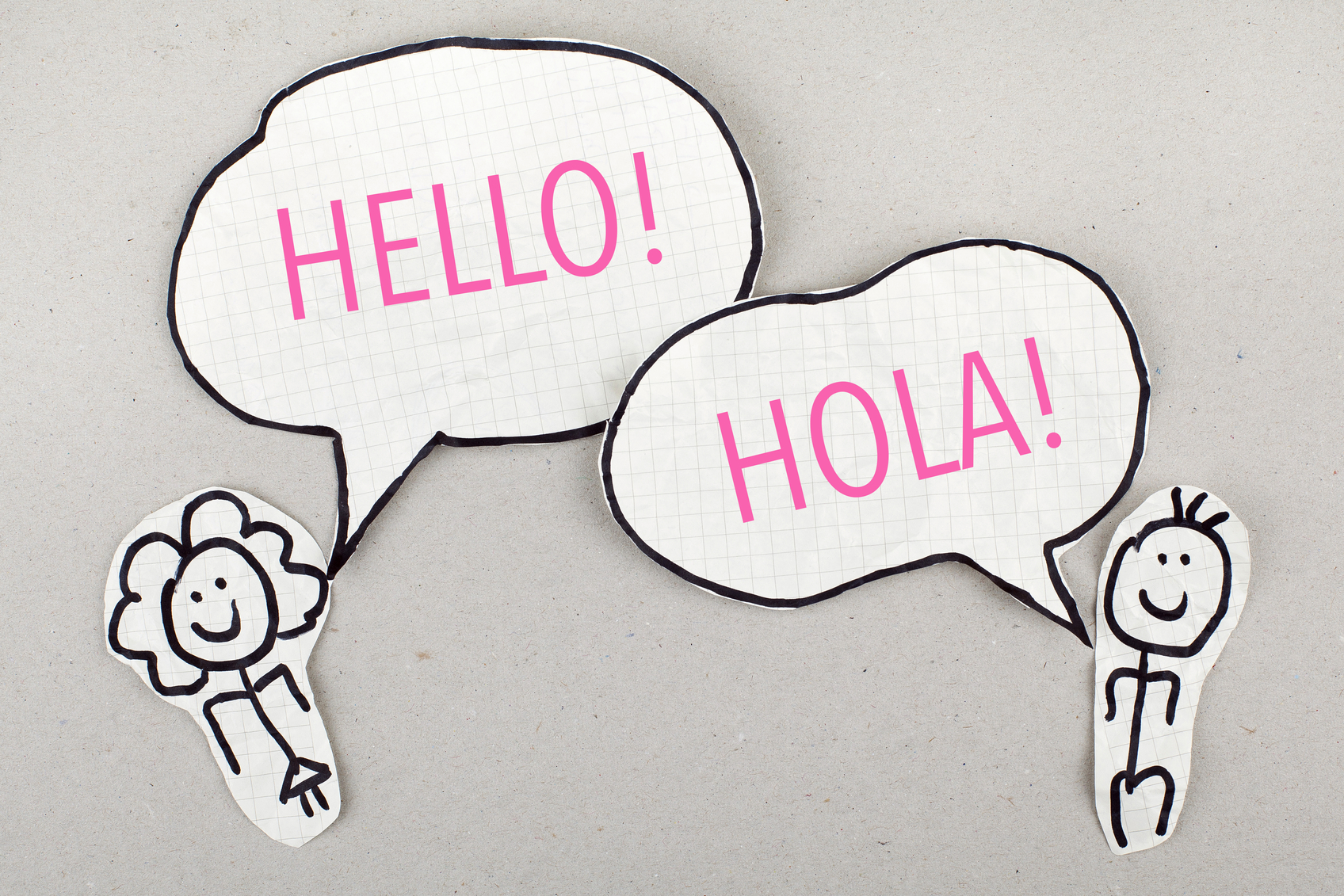I was taking the official listening exam in Chinese proficiency, and I could not understand a single word of the recording.
The test was “elementary” level, and I was confused. I had studied by myself for years, and I had lived for nine months of “full immersion” in my new country. I’d also attended Chinese classes for three hours per week. How could I perform so badly?
When I received the “Not-Passed Diploma”, my confusion turned into frustration. Who was to be blamed for my failure? I had really spent a lot of time studying seriously, with friends, books, music, movies, and language exchange. What was wrong?
It was not my first language learning experience. By the time I began learning Chinese, I was fluent in two languages besides my mother tongue and had studied other languages at a basic level. But this time, I entered into the adventure of an exotic language from a remote place, and I failed.
After some time, things got better, but it was a long and winding road with many obstacles.
Here’s what I learned…
1. Avoid Shifting Gears Between Languages
A drop of water falling on an uneven surface will follow the direction of the steepest slope. The brain does the same with languages.
In the presence of two messages in two different languages, the brain focuses on the easiest one, often blocking or ignoring the second one.
The brain seems to work at different speeds with different languages. Changing from one language to another implies changing speed, like shifting the gear in a car.
The moment I open a textbook and begin to study, my brain changes gear, which takes a small amount of effort. If I get distracted by a written text or an audio message in my mother tongue, my brain will shift gear again.
Here’s the simple lesson I learned: don’t get distracted by anything in a language different to the one you are learning. This is more difficult at a beginner’s level, because you might need an explanation in a language you can understand, or you need to check the dictionary. But I always try to create, as much as possible, an environment without distractions in other languages.
Try it for yourself. Which language are you learning? French? Find a free day in your schedule. Try not to read, listen or even say anything in a language other than French. Listen to music only in French, read the news in that tongue, and make the effort to think, with simple phrases, in French.
You can be even more radical with this. Remove all material from your desk that is not in French, and set your computer and your phone to French. Try this, even for half a day, and you will notice the difference.
2. Plan Exhaustion Into Your Study Goals
We’ve all had the experience of making a resolution: I will exercise twice a week, I will not lose my temper, I will study Japanese every day. After a beginning full of energy and determination, our motivation fades out and we find ourselves in the same situation: no exercise, losing our temper and not studying Japanese.
The problem might be bad planning, unrealistic goals or lack of motivation. But there is another aspect we can take into consideration: often we make plans and take decisions for the times in which we have a lot of energy. Why not plan instead for those moments in which we will be exhausted?
Ask yourself: How do I rest? Walking in the forest? Reading novels? Listening to music? Watching sports? Doing handicrafts? Painting?
Take your preferred way of relaxing, and add an element of your target language.
Like walking in the park? What about listening to a language podcast while you walk?
Enjoy reading novels? Look for a book adapted to your level.
Love listening to music? Have you tried learning a song in your target language?
Is watching sports your thing? Then watch the same sports matches you usually would, but listen to commentary in your target language.
Is your favourite “hobby” spending time with friends? Make a new friend interested in learning the same language as you. Learn together.
At the beginning, these new ways of relaxing will feel unfamiliar – perhaps even difficult. You will need time to adapt, but after a while it will be as effortless as the way you used to rest before. And most importantly, your brain will work by itself without you noticing, and will store information that it will bring up again when needed.
Make the most of your rest time!
3. Before You Take Your First Step, Decide Where You Want to Go
Each time I decide that I will start learning a language I need to set clear goals. Not only dreams, but clear specific goals, including the time and resources I am willing to spend on learning a new language.
For example, it might be that I am learning Russian because I found a Russian textbook at home. In this case my objective is to enjoy the act of studying. It is a valid objective and studying Russian is just a means to attain that goal.
Perhaps I sing in a choir that performs songs with French, Italian and Latin lyrics. I would like to understand a bit of these languages to make the singing more meaningful. In that case what I need is good pronunciation, together with some basic ideas about grammar and vocabulary.
We can imagine a more demanding situation: I want to apply for a scholarship that requires a certain level in Japanese, or my boss just told me that in order to get promoted I need to be fluent in Finnish.
It is then necessary to set clear goals. Here are some examples of goals:
Within one month acquire vocabulary concerning seafood products.
By 10th August be able to read in a loud voice fluently, without stammering, and clearly, even if I don’t understand what I read.
At the end of the year understand the evening news in my target language.
Survive my trip to Inner Mongolia.
Teach a university course in French next September.
It’s important to connect your big goals with activities that you can do at precise moments of your schedule. If you do this, you’ll reach your goals.
This could be attending Chinese class on Tuesdays from 1-2 p.m. Or it might be reading for five minutes in the morning, listening to music while jogging on Thursday afternoons, or watching a video course on Saturdays at 8 a.m.
4. Create Your Own Learning Activities
At the language schools I’ve come across they always want to teach many different things, but very rarely want to teach you how to learn.
In a restaurant this approach would make sense; we go to a restaurant to eat, not to learn to cook. In language learning, it does not make sense.
Creating personal learning activities means you examine yourself and your progress, and find direction in your study that’s relevant to you and your goals.
How can you examine yourself? On a regular basis, ask yourself:
What is my weak point now?
Which area do I want to strengthen?
In which field do I need to acquire vocabulary?
Where do I commit more mistakes?
What am I afraid of?
Then create a simple learning activity to address the issues you discover. Not sure where to start with this? Just create something. Try. Fail. Work. Adjust. Change. Practise. Examine. Fail. Try again.
Some of the things I’ve tried:
Going to a shopping centre and trying to buy 101 different things, even if at the end I didn’t buy anything.
Listening to music while reading the lyrics and singing aloud. Then singing without reading the lyrics.
Creating a database of phrases and vocabulary from a novel, and reviewing the list.
Reading an article every day in my target language.
Keeping a diary in my target language. One or two phrases a day.
These activities work best when you persist at them.
What do I do when I need ideas? I draw inspiration from other learners, by reading blogs and websites.
5. Love Mistakes and Laugh at Yourself
I enjoy my classes I teach. I don’t know if the students always do, but I do. One of the things I like is that we laugh at my mistakes. Often I mispronounce words, I forget terms, or forget the right stroke of a Chinese character. Sometimes my students cannot understand my questions, or I cannot understand their answers. Often they just smile, sometimes they laugh, they imitate my tones, they try to correct me on the spot. There is only one way to survive, and that is to learn how to enjoy failure. This has many advantages. First, we laugh, and it is good to laugh. Second, because I visibly enjoy failure, my students are not ashamed to correct me. Third, I no longer feel afraid of making mistakes.
There is a moment in which it’s particularly useful to laugh at yourself: on really bad days. We are not machines, we are not computers. In theory, once an app is installed on a phone it will work in spite of the weather and the day of the week. Human beings are not like that. It might happen that, for unknown reasons your Spanish is less fluent on Mondays. Don’t get frustrated. Smile!
Even if you make hundreds of embarrassing mistakes in one day, your friends are still your friends.
6. Love Silence
Love silence, speak less. I know this sounds like poor advice. And I profoundly believe in the standard methods of language learning: listen more, speak more, read more, write more. Yes, and at the same time: love silence, and speak less.
After each failure (grammatical mistake, wrong pronunciation), big or small, don’t ignore it so as not to lose motivation. Instead, stop, in silence, and ask yourself: what went wrong? What can I learn from this? Even better, write down your mistakes.
Loving silence, interior silence, enables you to be a better listener. I have seen trillions of learners who attain an intermediate level but don’t progress any further. Even if they are often corrected by others, they don’t notice it because they are too busy listening to themselves.
Loving silence also enables you to think a microsecond before speaking.
7. Don’t Forget Memorisation
Memorisation has bad press. We have heard many times that good education, including language learning, is about understanding, creativity, practising, or many other things, but it’s certainly not about memorisation, as it was in the past.
Memorisation is the ugly duckling of learning. It’s boring, takes much time, and often is useless. These are partly true, but I would still say “train your memory”.
8. Master the Art of Language Exchange
“We are here in front of a cup of coffee for the first time, ready to help each other to learn a language. Now what?” This is a common scenario in the first session of a language exchange.
How do you get past this awkward stage?
After finding a language exchange partner, one of the first things I do is to establish a common goal. If we don’t have a common vision, the language exchange will hardly work.
In my case, language exchange partners come from two sources: friends-of-friends and websites. When you find people on websites, check out their profile to see why they want to learn a language. A person might write that he or she is interested in meeting new people, romance, or cultural experience. I avoid people who want these things. Instead, I search for people who want to learn a language, because that’s my focus.
After we order a cup of coffee or dinner, I introduce myself and explicitly say that my focus is to learn a language. I let my exchange partner know that I have strong motivation. I explain what I expect from them (“Don’t worry if you don’t have experience”, “It’s ok if you aren’t a grammar superhero”). Finally, I outline the rules of the game (one hour for your language, one hour for my language, frequency and time, etc.).
An effective language exchange session requires a clear direction. I try never to arrive at a session without knowing what we will do that day.
Language exchange is something very personal and what works for some might not work for all, but one of the key components of a fruitful exchange is laughing lots and having fun. Show gratitude when you receive help from others.”
source: uk.businessinsider.com
So what is important when learning a language? Let’s summarize the hacks. Can you fill in the gaps?
1. Avoid shifting …… between languages.
2. Plan …… into your study goals.
3. …… you take your first step, …… where you want to go.
4. …… your own learning activities.
5. Love …… and …… at yourself.
6. Love …… .
7. Don’t forget …… .
8. Master the art of …… .
Key
1. gears
2. exhaustion
3. Before, decide
4. Create
5. mistakes, laugh
6. silence
7. memorisation
8. language exchange
to be confused – essere confuso
immersion – immersione
failure – fallimento
mother tongue – lingua madre
obstacle – ostacolo
to avoid – evitare
shifting gears – cambiamento di marcia
uneven – storto, non allineato
surface – superficie
steep – ripido
slope – pendio
to get distracted – distrarsi
exhaustion – sfinimento
to make a resolution – prendere una decisione
to lose sy’s temper – perdere la calma
determination – determinazione
to take into consideration – prendere in considerazione
to do handicrafts – fare lavoretti manuali
target language – lingua oggetto dello studio
unfamiliar – insolito, strano
to adapt – adattarsi
effortless – senza sforzo
objective – obiettivo
valid – valido
demanding – arduo, faticoso
to get promoted – ricevere una promozione
to stammer – balbettare
to strengthen – rafforzare
novel – romanzo
diary – diario
stroke – tratto
to imitate – imitare
to be ashamed – vergognarsi
in theory – In teoria
embarrassing – imbarazzante
profoundly – profondamente, completamente
interior – interiore
awkward – problematico, arduo
common – comune
explicitly – esplicitamente
experience – esperienza
superhero – supereroe
fruitful – proficuo, fruttuoso
gratitude – gratitudine







